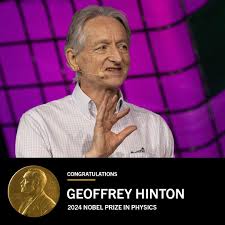
Introduction
Geoffrey Hinton, often referred to as the ‘Godfather of Deep Learning,’ is a pioneering figure in the artificial intelligence (AI) landscape. His contributions to the field are not only foundational but are also driving rapid advancements across various sectors, including healthcare, automotive, and finance. As we witness an AI revolution reshaping our society, understanding Hinton’s work is crucial to grasping the technology’s future potential and challenges.
Key Contributions to Artificial Intelligence
Hinton’s significant contributions date back to the 1980s when he developed algorithms that laid the groundwork for neural networks, a core element in machine learning today. His work on backpropagation illuminated how neural networks could learn from errors, making them powerful for diverse AI applications.
In 2012, Hinton and his team won the ImageNet competition by a substantial margin using deep learning techniques. This achievement showcased the capabilities of deep neural networks and sparked immense interest in AI research across the globe. Hinton’s findings have led to breakthroughs in natural language processing (NLP), computer vision, and robotics.
Recent Developments and Concerns
Recently, Hinton has expressed both enthusiasm and caution regarding AI’s rapid progression. In an interview, he acknowledged the immense capabilities of recent AI systems, such as ChatGPT and others, emphasizing their ability to perform tasks previously thought exclusive to humans. However, he has also raised concerns about the implications of such technology, including ethical considerations, job displacement, and the risk of autonomous systems making critical decisions without human intervention.
In light of these, Hinton advocates for responsible AI development and greater public understanding of AI systems. His recent departure from Google, where he spent over a decade working on AI, further highlights his commitment to fostering dialogue about the future of AI.
Conclusion
Geoffrey Hinton’s impact on artificial intelligence is profound and ongoing. As we continue to navigate the complexities of AI integration into society, the discussions he has initiated are crucial. His insights and warnings could shape the regulation and ethical considerations surrounding AI technologies. Looking ahead, Hinton’s legacy may not only be his groundbreaking work in deep learning but also his role as a bridge between technological potential and societal responsibility, urging us to tread carefully into a future dominated by artificial intelligence.



